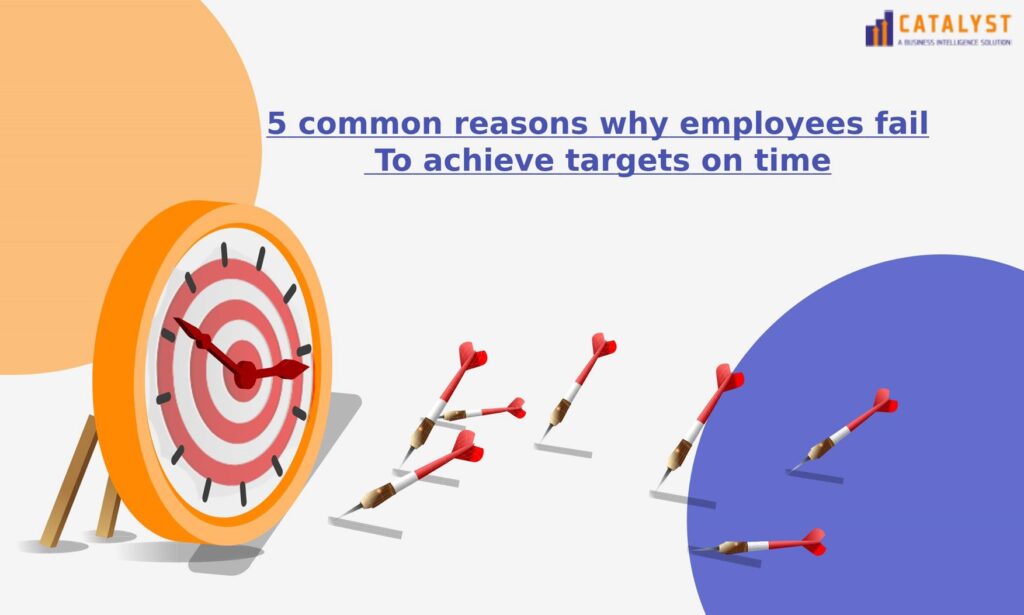
5 common reasons why employees fail to achieve targets on time
In today’s fast-paced and competitive business world, meeting targets and deadlines is crucial for the success of any organization. However, despite setting clear objectives and providing resources, many employees still struggle to achieve targets on time. This not only affects individual performance but also impacts the overall productivity and profitability of the organization. In this blog, we will explore five common reasons why employees fail to achieve targets on time and discuss how a performance management tool like CATALYST can help overcome these challenges.
Lack of Clear Goals and Expectations:
One of the primary reasons why employees fail to meet their targets is the absence of clear and well-defined goals and expectations. When employees are unsure about what is expected of them or have vague objectives, they are more likely to lose focus and direction. This lack of clarity can result in wasted time and effort as employees may prioritize tasks incorrectly or engage in activities that do not contribute to their targets.
Inadequate Resource and Support:
Another common reason for missed targets is the lack of necessary resources and support. When employees do not have access to the tools, technology, or information they need to perform their tasks efficiently, it becomes challenging for them to meet deadlines. Additionally, a lack of managerial support or guidance can lead to frustration and a sense of helplessness.
Poor Time Management:
Time management is a critical skill that many employees struggle with. Procrastination, distractions, and ineffective prioritization can lead to delays in completing tasks. Employees who do not manage their time well often find themselves rushing to meet deadlines, resulting in subpar work quality.
Lack of Motivation and Engagement:
Employees who are not motivated or engaged in their work are more likely to miss targets. A lack of enthusiasm can lead to decreased productivity and a lower commitment to achieving goals. Employees may also feel disconnected from the company’s mission and vision, further impacting their performance.
Ineffective Communication and Collaboration:
In many organizations, missed targets can be attributed to poor communication and collaboration among team members. When employees do not communicate effectively or collaborate with colleagues, it can lead to misunderstandings, duplication of efforts, and missed deadlines.
Conclusion:
Meeting targets and deadlines is crucial for the success of any organization, but many employees face challenges that hinder their ability to achieve their goals on time. From unclear expectations to poor time management and lack of motivation, these obstacles can impact individual and organizational performance. However, a performance management tool like CATALYST can play a significant role in addressing these challenges.
CATALYST provides a comprehensive solution for setting clear goals, allocating resources, improving time management, boosting motivation and engagement, and enhancing communication and collaboration among employees. By leveraging the features of CATALYST, organizations can create a more conducive environment for employees to meet their targets on time and drive overall success.
In conclusion, it’s essential for organizations to recognize the factors contributing to missed targets and invest in tools and strategies, such as CATALYST, that can help employees overcome these challenges and achieve their goals effectively and efficiently.

